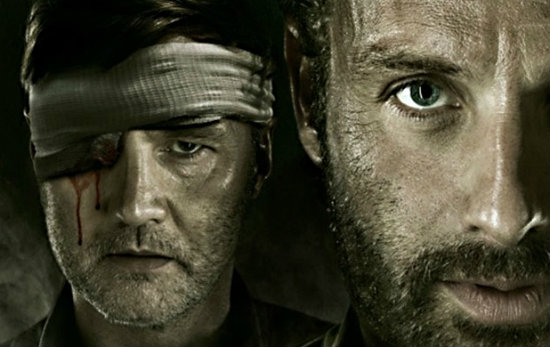
From folklore to brutal survival-horror, zombies are here to stay.
The hordes of undead may be growing in number, but you won’t find anyone gearing up for a potential zombie apocalypse. The only place these walking corpses plan on invading this year is the box office, and they’re not hungry for brains — just record numbers of viewers.
AMC’s critically acclaimed The Walking Dead returned Sunday with its midseason premiere after posting higher ratings than any other broadcast and cable entertainment show for the fall broadcast season. The zombie-themed drama regularly draws millions of viewers and looks to continue commanding Nielsen ratings throughout the rest of the season.
Jonathan Levine’s (50/50) Warm Bodies, a Twilight-meets-Shaun of the Dead romantic comedy, may have received reviews as tepid as its title. But given the amount of media buzz it generated and its $20 million-grossing opening weekend, it’s difficult to view the zom-com as a flop.
With a slew of zombie films, including the high-profile World War Z and The 4th Reich, both slated for release in 2013, it’s clear the undead have staked their claim in pop culture. Once relegated to a niche market of B-movies and comic books, zombies have successfully stumbled and devoured their way into the mainstream.
But zombies haven’t always been depicted as the mindless, ravenous monsters portrayed today.
The zombie’s legend traces its roots all the way back to traditional African and Haitian folklore, said Christopher Moreman, a philosophy professor at California State University, East Bay.
“There are these African traditions that describe people having multiple souls. Shaman-type priests would be able to capture a person’s soul and then force the person to do their bidding,” Moreman said.
While African mythology focuses on imprisoning the soul, Haitian legend holds that controlling a person’s physical body provides the means to create a zombie, a discrepancy Moreman attributed to the flourishing Haitian slave trade.
The zombie allegedly first made its appearance in U.S. culture in the early 20th century with William Seabrook’s 1929 novel The Magic Island, which details the author’s exploits in Haiti. In 1932, Victor Halperin’s The White Zombie, widely regarded as the first zombie film, introduced the Haitian concept to a much larger audience.
However, the flesh-eating undead we know today weren’t formally introduced into American culture until several decades later, with George Romero’s seminal Night of the Living Dead. Romero created a monster symbolizing the United States’ rampant commercialism — though his undead didn’t need to consume human flesh to survive, they did so anyway, paralleling Americans’ materialism. Though the film’s script referred to the monsters only as “ghouls” and “living dead,” they provided the template for the modern zombie we encounter in horror films today.
The transition from mindless slaves to bloodthirsty killers owes much to historical relations between the U.S. and Haiti, Moreman said. Frightened by historical accounts of Haiti’s slave revolt, Americans may have adopted zombies as allegorical figures of revolution.
“If the zombie is a Haitian creature, and the zombie embodies the idea of the slave … you have the Haitian slaves casting off their oppressors,” Moreman said. “In America, that would be scary, so then the zombie becomes an object of fear.”
And fearsome it was. Audiences flocked to see Romero’s film, which critics at the time labeled controversially terrifying. From that point on, zombies were here to stay, at least among low-budget horror movies and comic books.
Yet in the 21st century, a profound shift occurred. In the 2000s alone, more zombie films were produced than in the previous century. As an increasing number of filmmakers and audiences began to understand zombies’ criticism of consumerism, Moreman said, their popularity skyrocketed.
“If the zombie is more popular now, I would think it’s because people, at some level, are recognizing the critique more and more,” Moreman said.
Much more than just entertainment as mindless as the undead they depict, zombie films and television shows — steeped in complex history and a valuable message — offer an allegorical examination of the American psyche.
diversionsdbk@gmail.com



